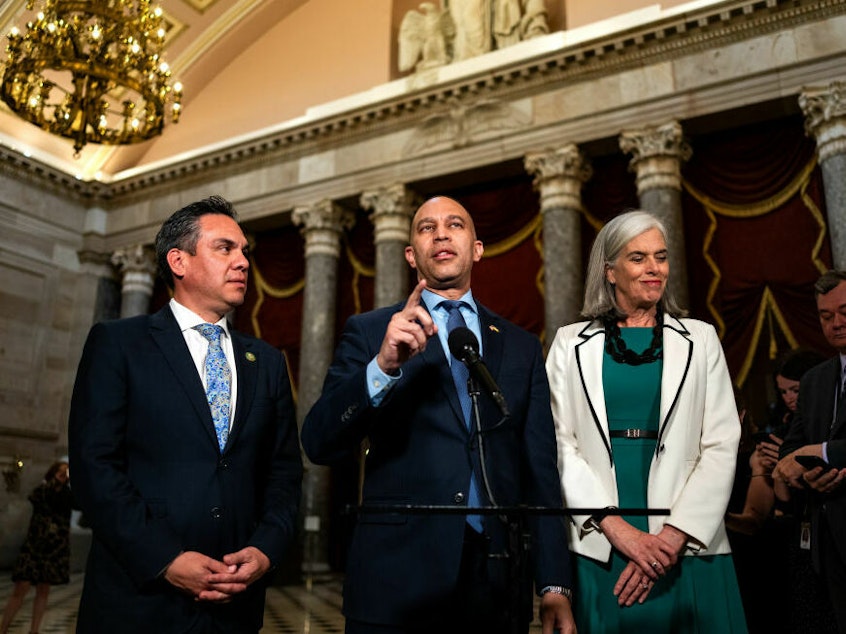House foreign aid bills advance with Democrats' help; Johnson may still be in peril

The House Rules Committee has voted 9-3 to advance a package of bills providing aid to Israel, Ukraine, and other allies, after Democrats took the rare step of supporting a procedural vote for Republican bills.
Republican Reps. Chip Roy, Thomas Massie and Ralph Norman voted against the rule, out of anger that assistance to Ukraine was not paired with conservative border security provisions, as House Speaker Mike Johnson had previously pushed to do.
Thursday night's vote enables the full House to vote on the rule and begin debate on the foreign aid bills. Various pieces of the package are expected to pass with bipartisan coalitions this weekend.
Ahead of the vote, Democratic leaders had not committed to supporting the rule, as text was not yet available. But they said they were open to the possibility and they were committed to getting foreign aid passed.
"We're going to do what's necessary to make sure that the national security bill gets over the finish line," House Democratic Leader Hakeem Jeffries said Thursday morning.
Sponsored
Minority support of a majority rule virtually never happens. As a result, Johnson and his predecessor, former House Speaker Kevin McCarthy, have seen several rules fail on the floor, largely over objections from the right flank of the party.
Aid moves ahead, but threat to Johnson remains
The rule does not raise the threshold to bring a motion to oust the speaker, which several members of the Republican conference had called for. Currently, it only takes one member to file such a motion. Johnson was reportedly considering the change Thursday morning, but he wrote on social media that the House "will continue to govern under the existing rules."
Reps. Massie and Marjorie Taylor Greene, R-Ga., have co-sponsored a motion to vacate the speakership, but so far have not brought it to the floor for a vote.
Rep. Mike Lawler, a moderate Republican from a New York swing district, said Thursday morning the threshold should be changed "immediately."
Sponsored
"However it needs to get done, it should get done," Lawler said. "If Mike Johnson is removed simply because he put aid to our allies on the floor, No. 1, it'll cause another prolonged amount of chaos. And No. 2, it will make it that much harder for the next speaker to do the right thing at the right time."
But several hardliners had spoken out against the change ahead of Thursday's Rules Committee meeting.
"If he attaches a rule to change the motion to vacate, and then uses Democrat votes on the Rules Committee, he's going to prove exactly what I've been saying correct: He is the Democrat speaker," Greene said.
Rep. Matt Gaetz, R-Fla., filed the motion to oust McCarthy in October, but does not support booting Johnson now.
"I worry that a whole lot of discussion about changing the threshold on a motion to vacate could become a self-fulfilling prophesy in triggering a motion to vacate," Gaetz said. "I think it is deeply unwise in a series of deeply unwise decisions that we've seen."
Sponsored
The Republican Main Street caucus, a moderate coalition within the House, will soon send a letter to Johnson asking him to further consider raising the threshold, according to Rep. Anthony D'Esposito, R-N.Y.
"The fact that we have the ability to have one person hold our conference — and quite frankly, this institution — hostage, needs to change," D'Esposito told CNN's Jake Tapper.
Most Democrats have not said whether they would help save Johnson if the motion to vacate comes to the floor. [Copyright 2024 NPR]



